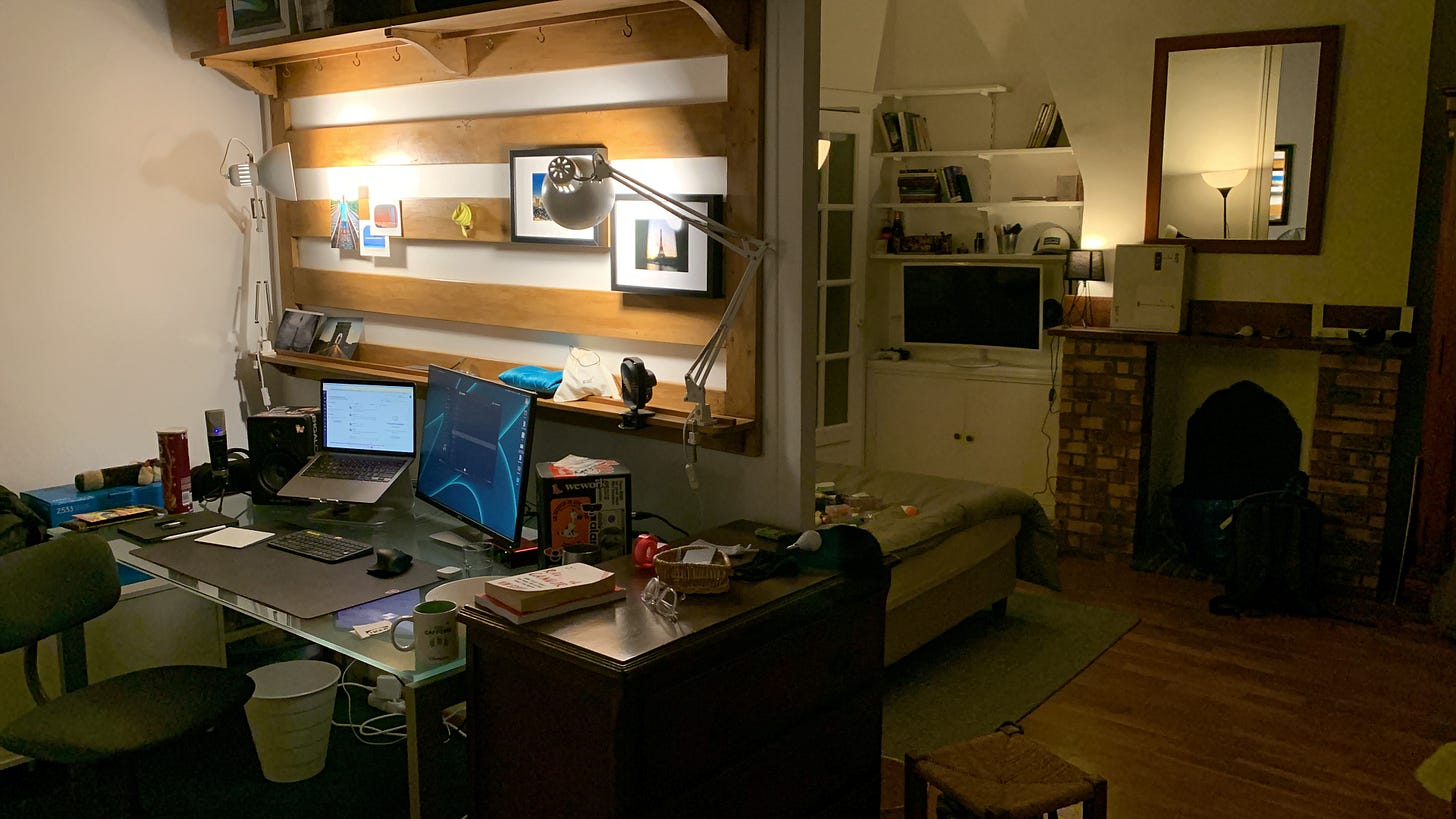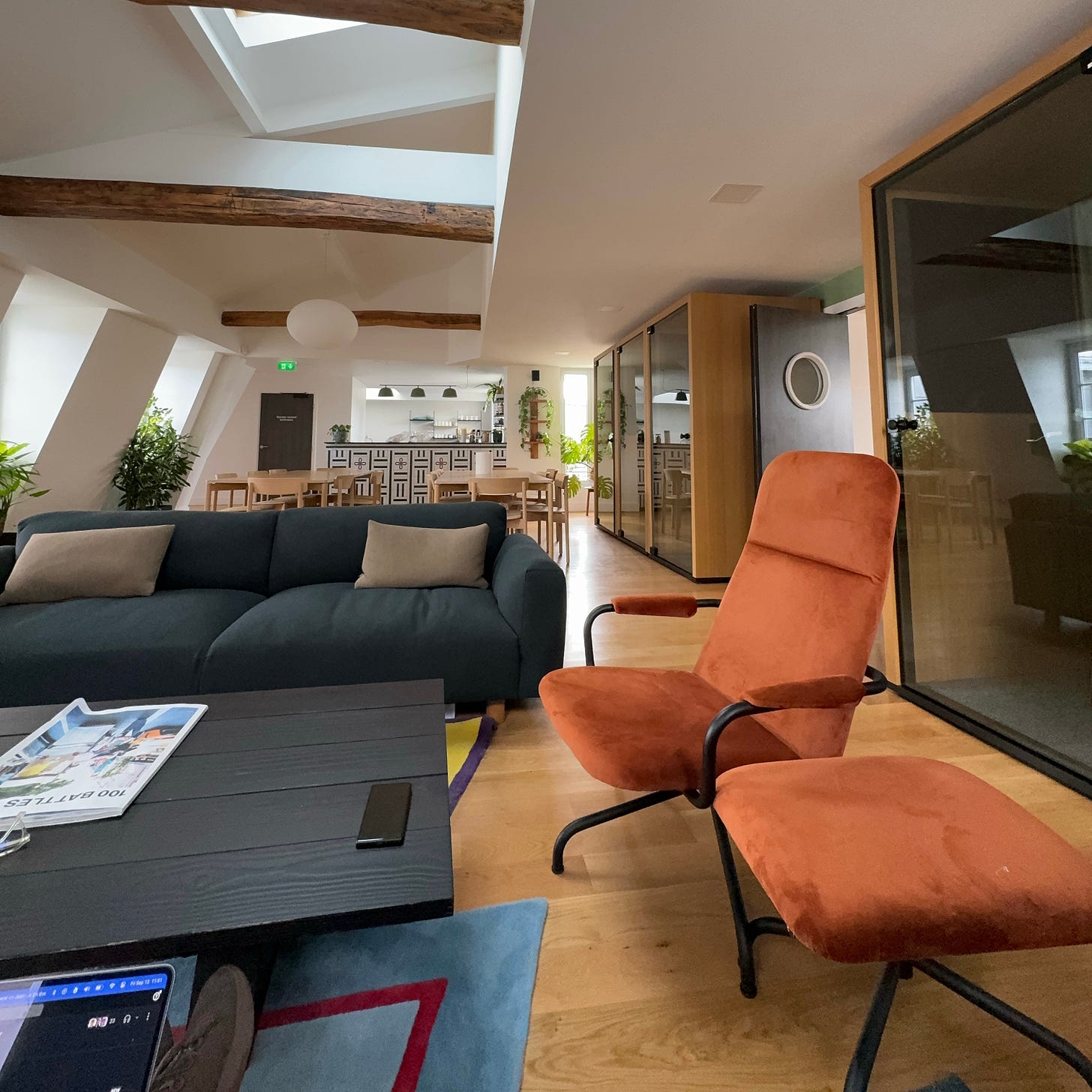What I’ve learnt after 3 years of working full time
A reflection of all the things I know now after 3 years and 4 companies
I’ve had many new newsletter subscribers recently, even though my last email went out in May of last year — and I get an email every single time I get a new subscriber.
Every single “new subscriber” email is a reminder for me to write in my newsletter again.
So here I am.
It’s been more than 3 years of working full time for me. I started my career (with a full time role) at a small early stage startup called Ubu.
That role lasted 9 months, before I decided to part ways and move to a larger startup, where I lasted 6 months, before we parted ways again for me to join another small startup in the AI space where I finally stayed (just a bit) longer than a year.
I left that startup 9 months ago when I got an offer to join Mojo, a video editing app on iOS and Android, as a product manager for creative content.
This new role combines everything I’m in love with — video editing, tech products, social media, and business. It’s been a dream role ever since I joined, and 9 months in, it’s only getting more and more interesting.
This is the role and company where I feel like I’ve learnt the most in such a short amount of time.
It’s been quite a journey though. Early career is never easy, and doing this in a different country from where I grew up doesn’t make it any easier.
And there are many things I know now that I wish I knew at the beginning (although, if I can be honest, I’m so glad I went into my career with a naive mindset since that’s what helped me learn as much as I’ve been able to).
What I’ve learnt in 3 years of working —
You don’t get what you don’t ask for
…and there’s nothing wrong with asking.
I’ve got sooo many things just literally by asking for them.
At work, I’ve been able to get salary raises (once close to 50% on a freelance project lol), perks and bonuses, and generally opportunities for growth.
I learnt that no one is going to come and offer me what I want. No is also going to read my mind about what I want I want. Sometimes all that asking for something does, is tell your manager (or whoever else you’re asking) that you want something. And if they already like you, they’ll want to give you what you want, so they can keep you happy.
Of course, this only works if:
You ask strategically (and not at a bad time), and
You already have a good reputation in the eyes of whom you’re asking.
Outside of work, I’ve been able to get exceptions and special offers made to me at restaurants, hotels and other places like that. Again, it’s all about sharing what you want, and sometimes they just want to make you happy so they give you what you want.
When I was younger, I used to be nervous about asking for stuff. I was scared about what they’d think of me, whether I’d be judged, what if they said no, etc. I realise now that it doesn’t matter, and people actually want to make you (or keep you) happy.
The worst case scenario is I get a no.
The most likely scenario is that I get some of what I want, or I get what I want later.
The best case scenario, of course, is I get what I want now.
Everything is negotiable
…specially deadlines.
Unless you’re saving lives (and props to you if you are) deadlines are mostly artificially set to create pressure that gets people to work. Without a deadline, most teams won’t get much done — they’ll just waste time in perfectionism or procrastination.
The goal for most teams isn’t to meet the deadline. The goal is to produce good quality work. The deadline is, more often than not, just a tool to help produce good quality work.
So, if a deadline is coming in the way of you producing good quality work by adding unnecessary stress, you can negotiate it. You just need to frame the request in a way that puts the emphasis on improving work quality rather than on your inability to work fast enough.
If something isn’t working out and there’s no recourse, just quit
…life’s too short to work at dead end jobs that stress you out.
Early on in your career, time is extremely precious.
The decisions you make about how you spend your time in the first three years of your career set the trajectory for the next 10 years of your career.
So if a job isn’t working out for you, and you’ve tried to make things work by negotiating, asking for the changes you think you need, or adjusting your expectations (for high-ambition folks, expectations can often be very high and very unrealistic, very early), you should just quit.
There’s plenty of jobs out there. If you can afford it and have a few months of expenses saved up, you can even quit before you find something else, so you can save your mental energy and spend it on figuring out your next step. Nothing wrong with that.
By spending your time at a job or company you hate, you’re not only wasting your time, you’re also spending costly mental energy to survive and stay afloat, instead of spending it in a way that makes you thrive.
I’m not going to get rich by struggling to save money
…I’m going to get rich by making more money than I need.
When I just started earning money, I was focused on trying to save more by cutting expenses I thought weren’t necessary.
My first winter in Paris living alone, I kept the heating on low so I could save €50-60 a month during winter. I denied myself nicer food, drinks and comforts, simply because I felt guilty that I wasn’t saving an enough % of my take-home income every month.
I quickly realised I was being stupid and short-sighted. I wasn’t going to get rich by struggling to save.
I was going to get rich by working hard on things I enjoy, sustainably over a long period of time.
I can only work hard sustainably if I’m comfortable and happy. So I started making myself comfortable and happy.

Even before my income increased, I started spending on comforts like a nicer apartment, heating, a nice desk and chair, tools, equipment, software to make me more effective.
Getting a nicer apartment was the biggest one — by having a nicer place to work and unwind, I gave myself more space to grow.
My income has increased since then, and the same expenses I thought were unnecessary at the start, now don’t bother me at all.
I’m really glad I learnt this lesson early on instead of wasting years to save the same amount of money I save in a few months now.
It’s okay to save a smaller % of your income earlier on. Spend money on making yourself happy and comfortable, and then over time you’ll be able to save a larger % of your income.
(obviously this only applies if you have reasonable confidence that your salary is going to grow)
It’s easy to recover from failures when you’re young
…but you can never go back in time to try that thing again.
Growth comes from taking risks.
Risks come with a possibility of failure.
When you’re young, failure costs you less.
When you’re old, failure costs you more.
So take more risks when you’re young. When you’re young, the upside is high — since you’re young, the growth and rewards last way longer. The downside is low.
When you’re old, the upside is lower, and the downside is higher.
Join that startup, start your business, post that Instagram Reel, TikTok or YouTube video, ask your crush out, try that new restaurant (this one’s for me lol).
The worst thing you can do when you’re young is play it safe ✌🏼
Thanks for reading this far —
I know this email might have come unexpectedly, so if you want to unsubscribe, feel free. I don’t mind (really).
Otherwise, thanks for reading. I can’t promise when the next email is going to come, but I appreciate you staying along for the journey nonetheless!
Cheers,
Mayank



So happy to see this newsletter from you Mayank.
I’ve recently started writing on LinkedIn and have learnt a lot from your past newsletters and LinkedIn posts.
Thank you very much for the work you’ve done so far. I look forward to your next written or video piece whenever that may be. Until then, have a good one mate :)
Was rather refreshing to read this !